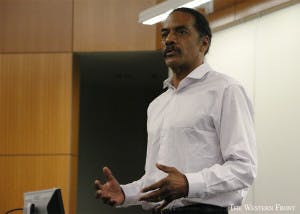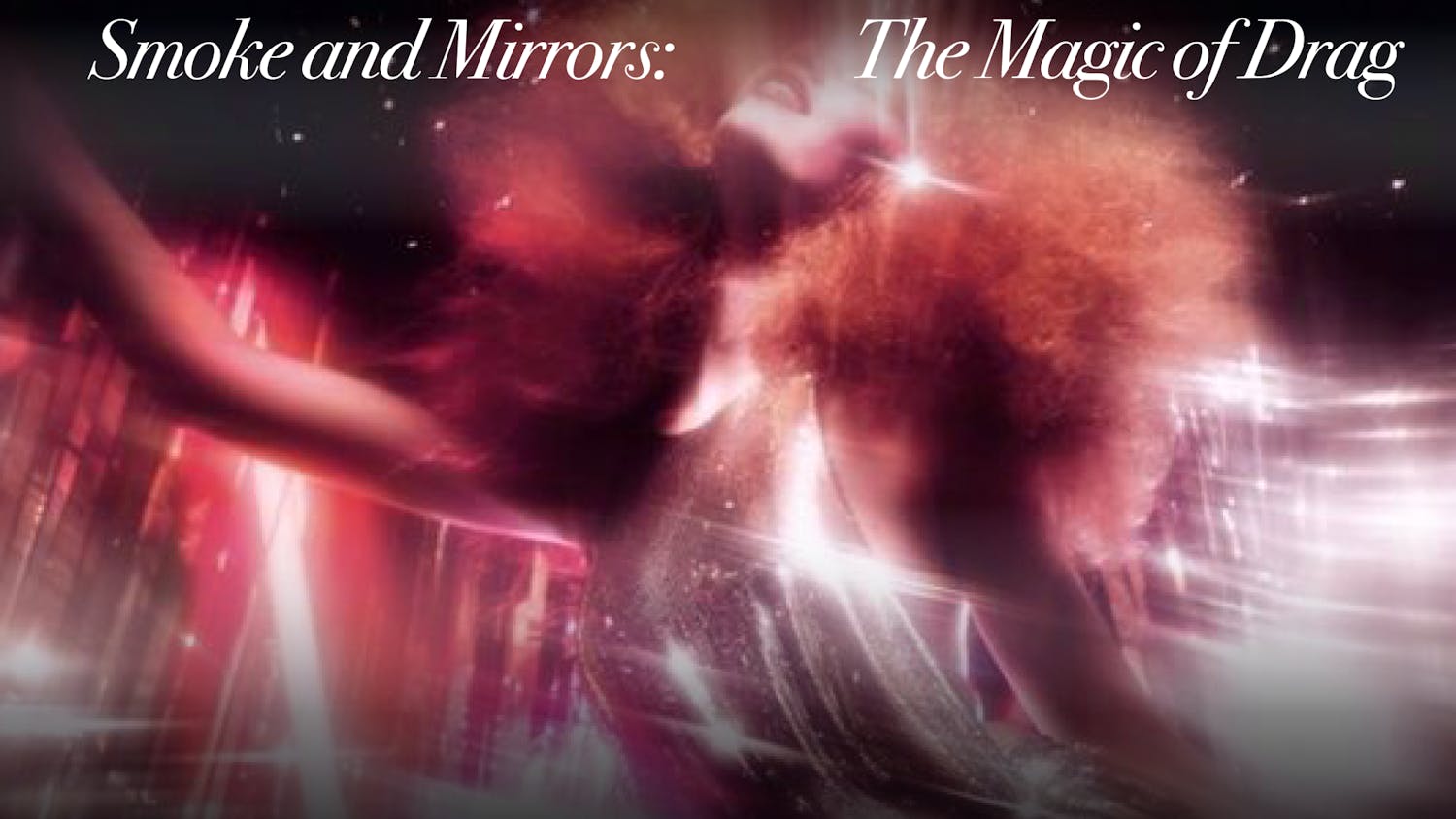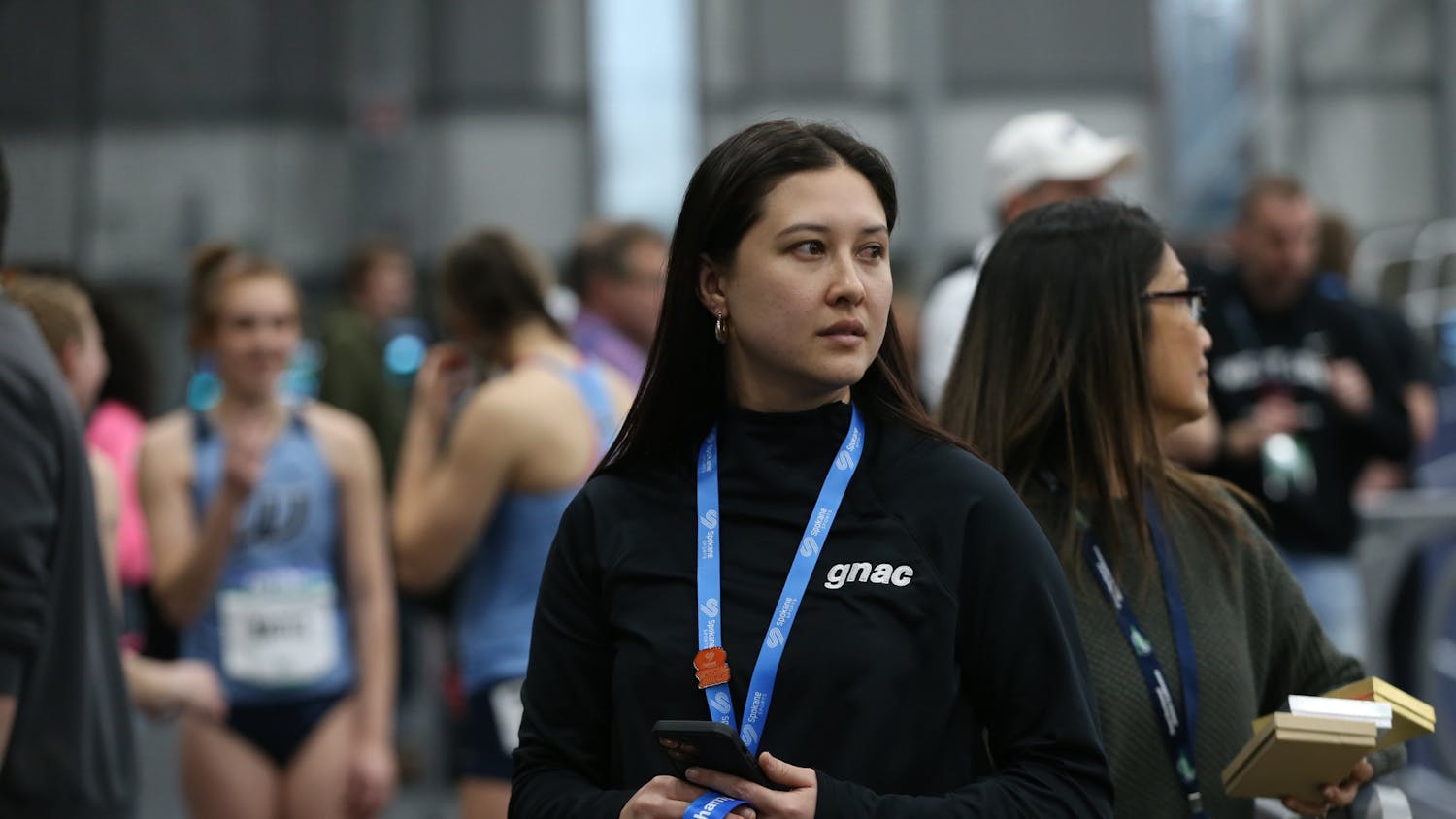
As a former captain of the Seattle Black Panther Chapter, Aaron Dixon has seen many forms of revolution throughout the years.
Dixon was 19 years old, a freshman at the University of Washington, when he traveled to San Francisco to attend a conference. He happened to run into Black Panther Party founder Bobby Seale and mentioned his interest in setting up a Seattle chapter of the Black Panther Party, Dixon said.
“One of the first things Bobby Seale told us was that in order to be in the Black Panther Party you had to have 2,000 rounds of ammunition and two weapons,” Dixon said. “We were like ‘oh shit.’”
Dixon spoke before a crowd of about 60 people on Wednesday, May 27, during a discussion hosted by the Social Issues Resource Center and the Black Student Union. The event also spurred discussion regarding how lessons learned from the Black Panther Party could benefit today’s black rights movement.
“When they killed Martin Luther King Jr., they killed the civil rights movement, so we were going to start a new movement that was more militant and more radical,” Dixon said.
Within a week, Seale appointed Dixon as the captain of the new chapter and invited him to Oakland to meet the rest of the leadership.
“I had never really left my family before and I just got a girlfriend too, so I was not ready to jump in at that moment,” Dixon said.
Despite his initial reservations, Dixon found himself in a world of shootouts, political assassinations and conspiracy, he said.
The day after Dixon arrived in Oakland, he was with the panthers drinking a mixture of port wine and lemon juice known as “panther piss” and smoking marijuana, which the panthers called “Brother Groovy,” he said.
It had been two weeks since one of group's founding members “Little Bobby Hutton” was killed in a shootout with the police and 18 panthers had been arrested in the chaos, Dixon said.
When a cop drove by the corner in west Oakland where Dixon and the panthers stood smoking, the group proceeded to taunt the officer, Dixon said.
He said the officer called for backup and before Dixon knew it, he was involved in a standoff between the panthers and the police.
“They had their hands on their guns and we had our hands on our guns,” Dixon said.
“We just knew that this was going to be it, that we were all probably going to die. But this was our stand.”
However, tension was later diffused when a panther tripped over a garbage can lid causing officers to see it as an opportunity to leave, Dixon said.
Former Black Student Union member and senior recreation major, Alex Bain, came to see Dixon speak because he represented a piece of living history, she said. His story is one that has been told many times but not always accurately, Bain said.
“There are not many places where you can educate yourself on this kind of history, like [Dixon] was saying, the media's not always the place to do it,” she said.
Though the Black Panther Party is often equated with radicalism, as the group matured they engaged in creative and original community development projects such as school breakfast programs, food banks and free medical clinics, Dixon said. These programs were some of the first of their kind and several were eventually funded by the federal government, Dixon said.
For Bain, these community programs were the most exciting aspects of Dixon’s presentation.
The panthers seemed especially good at identifying what the community needed and what their resources would realistically allow, Bain said. But Bain doesn’t see herself as the one to rally the troops, like Dixon did with the panthers.
“I’m definitely not the kind of person to take Dixon’s approach,” Bain said. “I will be the one marching behind, but I’m not the front-man. I will be the person to educate people and get them excited.”
The change in the Black Panther’s approach was guided by the writings of Che Guevara, he said, among others, who wrote “the true revolutionary is guided by a great feeling of love.”
“When we started the free breakfast program, there were people who didn’t see the importance of that,” Dixon said. “They didn’t see that as being revolutionary, but as it turns out that was the most revolutionary thing we did.”
Similar to Bain, Dylan Rus-Ingham, a recently elected Budget Authority for the Black Student Union, was also impressed by the Black Panther’s ability to create groundbreaking programs using more than creativity.
“He and I are very similar in our ways of thinking,” Rus-Ingham said. “It was interesting to hear his story.”
Rus-Ingham wants to create an academic support group for these students to help them feel confident and do well in that most crucial of transition years, he said.





